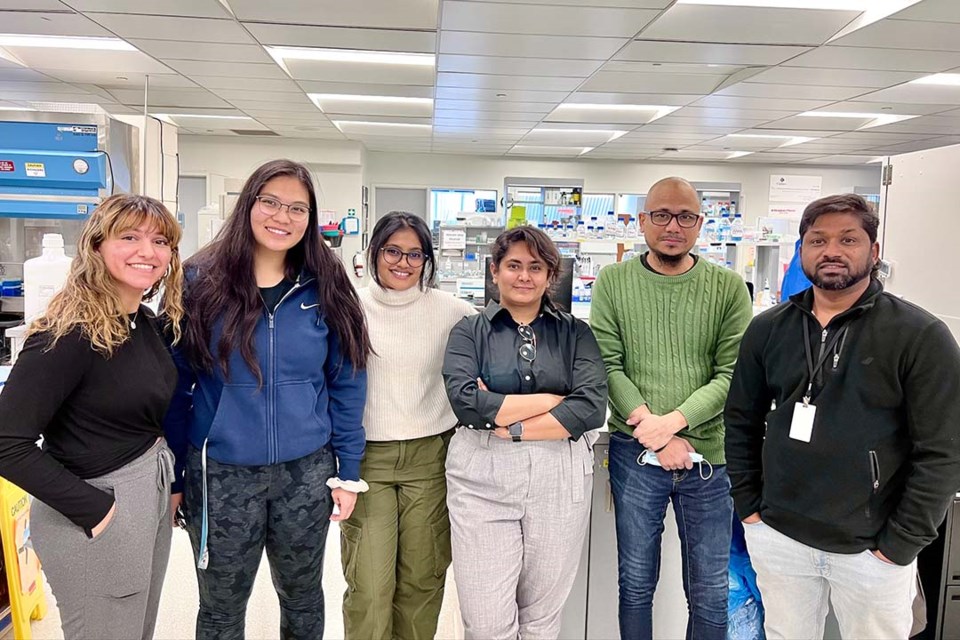SASKATOON – Chemotherapy can be a saving grace when facing cancer. When drug-induced neuropathy results from anti-cancer drugs like Cisplatin (CP), a common drug for breast cancers, a way to combat these unwanted side effects is critical for patients to maintain optimal treatment.
Dr. Anand Krishnan (PhD), assistant professor in the College of Medicine at the University of Saskatchewan (USask), was awarded $120,000 from the Canadian Institutes of Health Research Institute for Cancer Research and from the Cancer Research Foundation to find potential therapies for peripheral neuropathy in breast cancer. This painful complication affects 70 -100 per cent of patients undergoing Cisplatin treatment.
Several classes of chemotherapy drugs can induce peripheral neuropathy, resulting in severe pain, numbness, a lack of spatial awareness and movement defects. In these cases, either reducing the dose or stopping the causative treatment altogether are the mainstay options for relief.
With no effective treatment for these negative side effects, Krishnan and his collaborators will take a closer look at nerve tissue to understand what is causing this neuropathy at the molecular level.
“Despite decades of research in this field, no effective therapies are available for tackling this debilitating complication from chemotherapy drugs,” said Krishnan. “By looking at the nerve-tumour interface and identifying specific targets to test candidate drug treatments, we are one step closer to identifying clinical therapies for patients.”
Krishnan’s team hopes to find the underlying molecular changes that facilitate neuropathy development. When identified, these molecular targets will allow the team to test potential drug or drug combination treatments.
This research is an extension of Krishnan’s larger focus exploring the nerve-tumour interface in treatment-resistant breast and prostate cancer. Peripheral nerves are part of the tumour microenvironment and can promote cancer growth. By examining the molecules released from nerves and their signalling cascades in detail, it may reveal new pathways for potential targeted interventions.
With a background in cancer biology and peripheral nerve disorders, Krishnan is working with many collaborators including neuroscientists, clinician scientists, and students, to ensure this fundamental work is also translational to a clinical setting.
“I’d like to thank my collaborators and funders for their support in this emerging area of research that promises to offer new therapies for treatment-resistant cancers. It really makes future translation of this work possible.”
— Submitted by USask Media Relations




